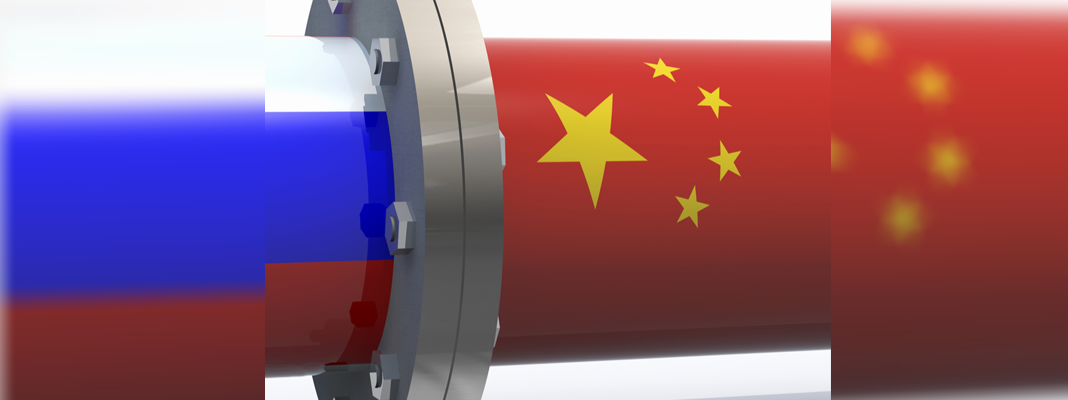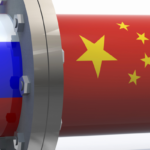Alibaba has formed a strategic alliance with Mail.Ru Group, operator of Russia’s leading social network and a major player in online gaming and email services. The move provides greater opportunity for AliExpress, Alibaba’s international marketplace site, which is already a major seller of Chinese goods to Russian online shoppers.
Alibaba, Mail.Ru Group, Russian telco MegaFon and sovereign fund Russian Direct Investment Fund (RDIF) today announced a “strategic partnership” that encompasses such a wide area as e-commerce, social media, online entertainment and communications combined.
Adrien Henni, chief editor, East-West Digital News
The agreement aims to leverage on the existing businesses of AliExpress Russia, the B2C marketplace owned by Alibaba which controls a large part of the e-commerce flows between China and Russia. The partners will pour their “capital, strategic assets, leadership, resources and expertise” in a joint venture (JV) which, keeping the brand of ‘AliExpress Russia,’ will “operate across all e-commerce segments, including cross-border and local marketplaces and first-party retail.”
This will “create an unmatched value proposition for merchants, consumers and Internet users” across Russia and some other post-Soviet republics.
The key points of the agreement, as publicly announced, are the following:
- Alibaba Group will contribute to the JV its Russian business units AliExpress and Tmall;
- Both Alibaba Group and the RDIF will inject undisclosed amounts of capital into the JV (in a media interviewRDIF General Director Kirill Dmitriev spoke about “several billions of US dollars”);
- The sovereign fund will thus become a “strategic shareholder” of AliExpress Russia with a 13% stake, while MegaFon will sell its existing 10% stake in Mail.Ru Groupto Alibaba Group in exchange for a 24% stake in AliExpress Russia;
- Ru Group will contribute Pandao (the platform it launched last year to sell Chinese products to Russian online consumers) to the JV, and “support cash and distribution product integrations,” in exchange for a 15% stake in AliExpress Russia;
- AliExpress Russia and Mail.Ru Group will also “cooperate in traffic and product initiatives, among other things.”
After deal completion, AliExpress Russia will be owned by Alibaba Group (48%), MegaFon (24)%, Mail.Ru Group (15%) and the RDIF (13%). The transaction is, however, still subject to customary closing conditions and the respective corporate approvals of each party.
Mixing e-commerce, gaming and social communications
The partnership has implications beyond e-commerce. Accessing Mail.Ru Group’s huge user base, the JV will “fill a highly complementary role in the Russian consumer lifestyle value chain, creating a one-stop platform for social, communications, gaming and shopping.”
This statement refers to Mail.Ru Group’s leading positions in Russia’s social media (via the group’s properties VK and OK, whose audience far exceed that of Facebook in Russia), online gaming (100 million registered users worldwide), email services (100 million user accounts) and online communications.
Alibaba Group and Mail.ru Group are planning to broaden even further this ecosystem by “investing in another business together with Mail.Ru Group, including foodtech and other initiatives.” (Earlier this year Mail.Ru Group created a dedicated vehicle to invest in foodtech, following a series of direct acquisitions in this field.)
Mail.Ru Group already works with Alibaba: in early 2017, the two companies announced a plan to enter the international game distribution industry with a planned investment of $150 million.
Historic deal or “capitulation”?
RDIF General Director Kirill Dmitriev sees in the newly created JV “a truly historic deal of the highest importance for us, for the Russian market and for the tech market globally.” He underlined that all personal data will be treated and stored on Russian territory, as required by the legislation, while the JV will use Russian payment technologies such as Mir, the national bank card system.
Another key benefit of the deal is to “support Russian SMEs” both locally and globally by giving them access to 600 million consumers visiting Alibaba’s platforms, Dmitriev underlines. As a matter of fact, even though AliExpress’s initial purpose when entering the Russian market was to sell Chinese goals to Russian consumers, it quickly opened its platform to Russian retailers.
In a Facebook post, Boris Ovchinnikov, a top Russian e-commerce expert, perceived the deal in a completely different way, calling it “a capitulation” of the Russian side. The Chinese giant “receives protection from RDIF and Alisher Usmanov [the Kremlin friendly owner of a large stake in Mail.Ru Group] against potential tax restrictions to cross-border sales; gets a 10% stake in Mail.Ru Group; secures access to the group’s online properties and services; takes control of a competitor, Pandao; and receives funding from RDIF and Mail.Ru Group to develop further in Russia.”
In exchange for all that, Mail.Ru Group and RDIF will only “control a JV with unclear assets,” wrote Ovchinnikov.
Sovereign investment from medical robots to e-commerce
The RDIF – which has not been involved in B2C e-commerce projects so far – recently established a new vehicle to invest in technology, as reported in late 2017. Dmitriev then announced future investments together with Alibaba in the field of e-commerce logistics, before discussing an even larger scope of partnership with the Chinese group.
The sovereign fund’s agreement with Alibaba is coming as last in a series of deals with Chinese players. Last year, the RDIF agreed with China Development Bank to create the China-Russia RMB Investment Cooperation Fund. The fund also invested in Chinese steel marketplace Zhaogang.com (Steelsearcher.com), and inked a partnership with several Russian and Chinese industry players to develop and manufacture medical robots. Back in 2012, the Russian fund teamed up with China Investment Corporation to create the Russia-China Investment Fund (RCIF).
This article first appeared in East-West Digital News, the international online resource on Russian digital industries, and is reprinted with permission.












